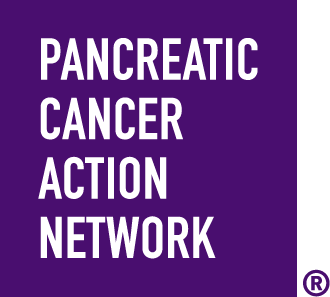On January 6th, 2017 our beloved Kathleen was diagnosed with Stage 4 Pancreatic Cancer. After over 10 months courageously fighting the disease she lost her battle in October. We remember her indomitable spirit and her passion to live, laugh, and love by continuing to fight the disease as best we can in her memory. She never gave up the fight nor should we.
We are raising money in support of the Pancreatic Cancer Action Network by participating in PurpleStride. By making a donation to our team, you are supporting efforts to double survival for this deadly disease by 2025. Please make a donation today or register to walk with us on Sunday, June 28th and help us reach our fundraising goal.
PANCREATIC CANCER IS ONE OF THE DEADLIEST CANCERS
• In 2016, pancreatic cancer moved from the fourth leading cause of cancer-related death in the U.S. to the third, surpassing breast cancer.*
• Pancreatic cancer is the 11th most commonly diagnosed cancer in men and the ninth in women.
• It is estimated that in 2016, 53,070 Americans will be diagnosed with pancreatic cancer, and 41,780 will die from the disease.
Seventy-one percent of patients will die within the first year of diagnosis.
• Pancreatic cancer is the only major cancer with a five-year relative survival rate in the single digits, at just 8 percent.
• African-Americans have the highest incidence rate of pancreatic cancer, between 28 percent and 59 percent higher than the
incidence rates for other racial/ethnic groups.
• While overall cancer incidence and death rates are declining, the incidence and death rates for pancreatic cancer are increasing.
Pancreatic cancer is projected to move past colorectal cancer to become the second leading cause of cancer-related death in the
United States around 2020.
PANCREATIC CANCER IS VERY AGGRESSIVE; THERE ARE NO EARLY DETECTION METHODS
• Because the pancreas is located deep within the abdomen, and because pancreatic cancer can progress very quickly from stage I
(localized within the pancreas) to stage IV (metastatic disease) in an average of 1.3 years, it is critical to develop early detection tools.
• At this time, there are no proven biomarkers, or clues detectable in the blood or other bodily fluids, that could indicate the
presence of a pancreatic tumor.
• The vast majority of pancreatic cancer cases are diagnosed in late stage. More than half of patients are diagnosed once the disease
has metastasized. Only about 9 percent of cases are diagnosed when the disease is still confined within the pancreas.
• Symptoms — including abdominal or back pain, weight loss, jaundice, loss of appetite, nausea, diabetes and changes in stool — are
often subtle and are generally initially attributed to other less serious and more common conditions.
• The cause of the majority of pancreatic cancer cases is unknown. For the few known risk factors (e.g., familial history, smoking,
obesity), more research is needed to understand their direct relationship to the disease. The known behavioral factors only impact a
minority of pancreatic cancer cases.
TREATMENT OPTIONS ARE EXTREMELY LIMITED; PATIENTS ARE UNDERTREATED
• While surgery (often the Whipple procedure) offers the best chance for survival, fewer than 20 percent of pancreatic cancer cases
are diagnosed early enough for surgical intervention. Even with surgery, the disease recurs in approximately 80 percent of these
patients, who die within five years of recurrence.
• For non-surgical candidates, chemotherapy — possibly with radiation — is typically offered but is not considered curative.
• Since 1974, only four drugs have been approved by the U.S. Food & Drug Administration (FDA) to treat pancreatic cancer:
gemcitabine (Gemzar®) in 1996, erlotinib (Tarceva®) in 2005, albumin-bound paclitaxel (Abraxane®) in 2013 and irinotecan liposome
injection (Onivyde™) in 2015. In 2011, a combination chemotherapy regimen called FOLFIRINOX was found to improve survival of
metastatic pancreatic cancer patients. While these new treatments and combinations have recently been shown to extend the lives
of pancreatic cancer patients, the improvement is small, and the vast majority of patients still rapidly succumb to their disease



 Loading ...
Loading ...


